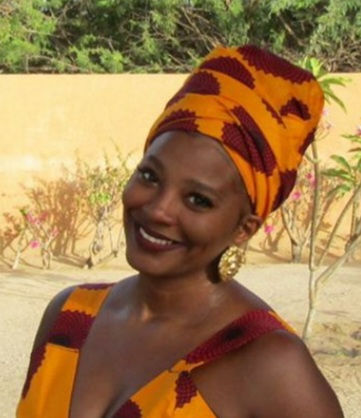April Showers Edition: (Qahr)قهر , by Shannon Cumberbatch
- Boston Ujima Project
- Apr 18, 2024
- 3 min read
Updated: Apr 23, 2024
The title "Qahr", suggested by Njeri Wright, perfectly encapsulates the depth, intensity and duration of emotions and experiences that no English word can capture. This poem challenges those who condemn/silence support for Palestinians to imagine themselves in the same horrific conditions of genocide and occupation, as the world shows the same callousness and cowardice they are presently demonstrating. This piece is a reminder that tomorrow we can, and likely will, experience any injustice against others that we observe and ignore today; it's a call to action to end our complicity, and courageously work toward our collective liberation.
Listen to Shannon read the poem here:
(Qahr)قهر
i hope that if one day
the rubble from what was once your sanctuary
becomes your sky
and your ground the mass graves of generations who died
from days and decades of genocide
trapped in a purgatory between two realms
hoping for peace in the after-life
after living through hell
i hope that if one day the light from explosions in the sky
seep through the cracks of concrete like sunshine
while suffocating smoke swallows fresh air
threatening to choke you as you wail in despair
hoping someone will hear you
that someone is there
that someone who sees your suffering
will care
before it's too late
before you prepare for your final sunset
while the weight of the wreckage rests on your chest
threatening to crush you and take your last breath
hoping you’ll be found and liberated, even if in death
and that the souls of those who chose complicity to protect
their comforts live in eternal unrest
i hope that if one day as you lie awake,
crushed in a tiny space that may soon become your tomb
where the booms from bombs replace the songs of birds,
that you can’t still hear the silence of cowards across the world
claiming calls for your safety and solidarity cost too much
are too controversial
take too much time
are an affront to their funders and they don't want to lose a dime
i hope that if this moment arrives,
that the masses possess the conscience and courage you lack today
that they consider the cost of your life and their souls too much to pay
i hope they don't seek solace in silence
and make you stream the screams
of those carrying limbs and limp corpses killed in colonial violence only to believe your oppressors lies when they deny it
i hope they don't try to balance both sides of genocide
and condemn your resistance
while debating whether your children count as innocent lives and have the right to existence
i hope that when the dust from mass death settles
when truth defeats the propaganda machine
and in hindsight when everyone agrees that this was ethnic cleansing a preventable genocide
as we watched a nation state annihilate entire bloodlines live that you remember where you stood today,
and what you did
that your words of condemnation, equivocation and commitment to both sides while only one side is occupied and silenced while suffering genocide
are memorialized
i hope you remember
because we, and history, will never forget
this is the legacy you were pressed to protect
“There is no English equivalent to the Arabic word qahr قهر. The dictionary says ‘anger’ but it’s not. It is when you take anger, place it on a low fire, add injustice, oppression, racism, dehumanization to it, and leave it to cook slowly for a century,”And then you try to say it but no one hears you. So it sits in your heart. And settles in your cells. And it becomes your genetic imprint. And then moves through generations. And one day, you find yourself unable to breathe. It washes over you and demands to break out of you. You weep. And the cycle repeats.” - Khadijah Muhaisen Dajani

Shannon Cumberbatch (she/her) is a recovering public defense attorney, former non-profit managing director and educator who advocated against injustice in the courtroom and workplace. Now, as the founder of Uproot.ed, Shannon offers coaching, consulting and educational curriculum to individuals and institutions committed to uprooting oppression through education and action. Shannon also curates international cultural immersion experiences, and provides restorative support for sufferers and survivors of the non-profit industrial complex.
Poetic expression is one of Shannon's most soothing sources of catharsis, sharpest tools of resistance, and most accessible container to hold emotions too heavy and messy for a simple paragraph; it's always been her most intuitive outlet to illustrate unspeakable injustice. Shannon's poetry and prose has been published in the Harvard Black Letter Law Journal, the Journal of Civil Rights and Economic Justice at St. John's University School of Law, and the Washington University Journal of Law & Policy.

.png)


